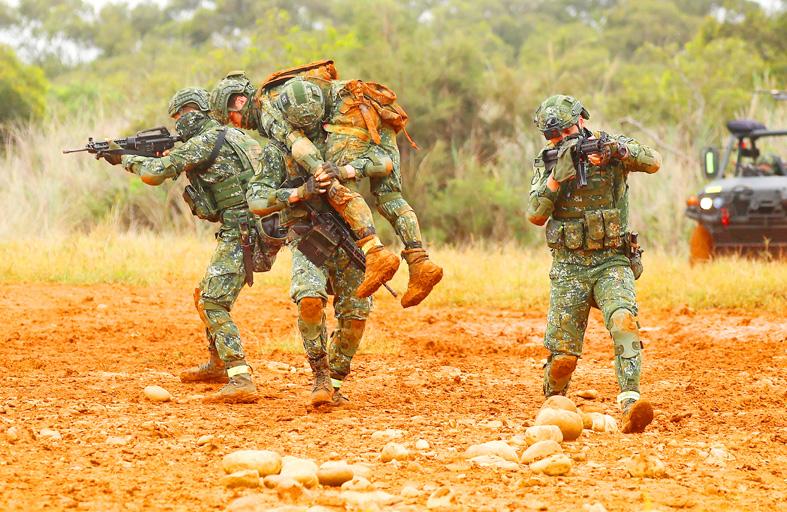The army’s Aviation and Special Forces Command conducted training yesterday in which all orders were delivered in English.
The training — held in Hsinchu County’s Kengzihkou (坑子口) area — featured simulations of troops ambushing enemy soldiers, including vehicles passing through the ambush zone.
The training was part of the special battalion’s “tactical mission march,” which runs from Tuesday last week until Friday next week.
Its aim is to improve combat readiness and strengthen the battalion’s capabilities, the military said.
Yesterday was the 10th day of the 456km march across New Taipei City, Taoyuan, and Hsinchu and Miaoli counties.
After yesterday’s leg, 234km were completed, the military said.
Asked whether the use of military terms in English was linked to Taiwanese troops being trained by US military experts, command spokesman Major General Wang Chun-chieh (王俊傑) said there was no special meaning to the use of English during the training.
English allowed for easier and quicker communication during the training, Wang said.
President Tsai Ing-wen (蔡英文) in an interview with CNN in October last year said that a small number of US armed forces personnel were in Taiwan to train Taiwanese troops, confirming media reports about the training mission.
Source: Taipei Times - 2022/03/26





















